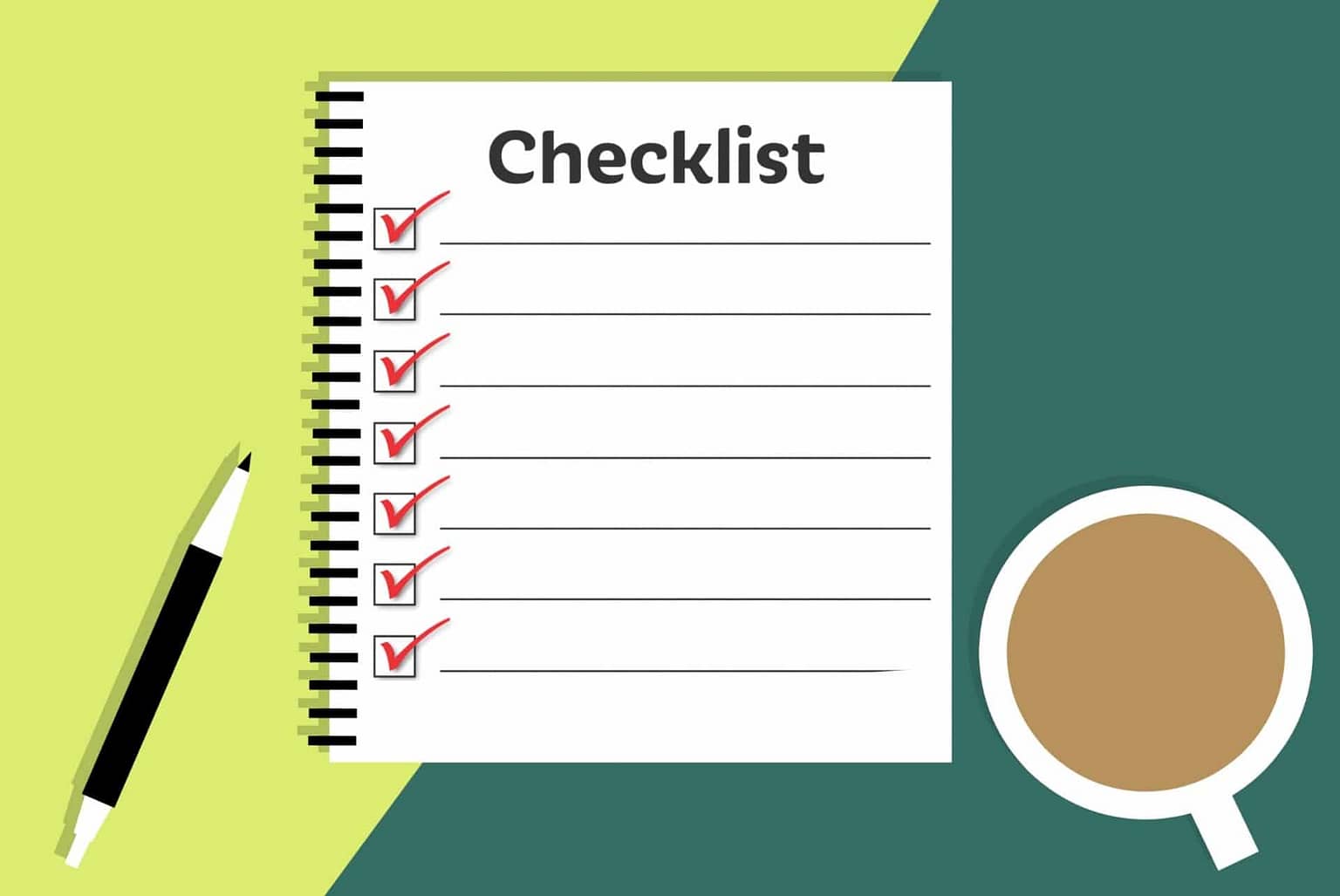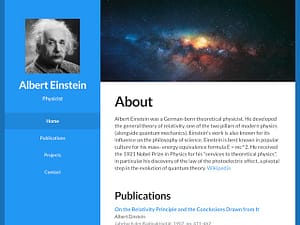First of all, you’re probably wondering why you even need a personal academic website? Well we’ve got that covered here (the answer is yes):
Do I need a personal academic website?
Now, what to include on your personal academic website. First you need to ask yourself a question.
How do I want to be seen online?
Essentially, you need to figure out what parts of you you want to get through on your website. Is this a CV? Factual only? Do you want to show a bit of personality? Is this a dynamic website that you’ll update regularly or is it more a static “business card” style page.
Once you’ve figured out how you want to be seen by those that land on your site, you can begin to decide what exactly you want to show. In any case, there’s a few key things that you definitely want to include.
1. Your name
Seems a bit obvious right? Well, it’s not. I’ve seen a lot of academics, particular graduate students, who opt for an alias or a website based around their work rather than themselves. They take what’s common on Social media, and present their work around a “username”. This is fine if you’re not looking for people to stumble on your site and you only want visitors coming from links that you’ve sent out. If you want anyone to find you, you need to include your name, and frequently. Have an about page with your name on it, put your name on any posts you publish, include it in publications, CV pages etc. The more your name appears on your website, the more Google trusts this site is about you.
This point is particular important when it comes to your domain name. We cover that in more detail here.
2. A picture of you
Alongside your name it’s important to include a picture of yourself. A nice professional headshot (or the closest you can get using your smartphone) shows your visitors that you’re friendly, open, and trustworthy. It puts a face to your content that your viewers will have in their mind as they browse.
Including a picture gives your personal academic website that personal touch and makes you more approachable. It also helps with networking. The next time you’re at a conference and share details, people will immediately be able to associate you with the person they met.
Lastly, it removes ambiguity. I thankfully have a fairly unique name, but many people don’t. If your name has any ambiguity then there’s no guarantee the person who is looking for you has found you – by displaying a picture of yourself you remove any doubt.
3. Your academic biography
That’s the reason people are here right? They want to find out about you as a researcher. This is homepage content. A good and in depth overview of your interests and work as an academic. Even if you’re aiming for the static style website, you’re going to have to keep this up to date. I’ve too often seen websites that are 5, 8, 10 years out of date. No one wants to know what you were working on a decade ago, they want to know what you’re doing now.
4. Your academic CV
This one is especially important if you’re job hunting. You want any potential employer to find out as much about you as possible without leaving your website. You can get away with linking to LinkedIn here, and I’d always recommend you do that anyway, but if you have the time to keep your website up to date I’d suggest you try have as full an academic CV on there as possible.
If you plan to link directly to a document (PDF for example) make sure this has been curated to be shared online by removing any personal or contact information.
5. Information about your research
No, this isn’t the same as your biography. This is less about you and more about your work. What are you working on right now? What’s the title of your PhD? What grants are you involved with?
Depending on where you are in your career this could either be a paragraph in your bio, a whole page, or a whole section.
6. Your publications
But I don’t have any yet?! Well you can skip this one for now but remember to come back to it.
For those that have published, this is the perfect place to publicise those publications. This should be it’s own page with links out to your publications with a decent amount of information about each. As with your CV and LinkedIn, you can also link to ResearchGate, but the more you can avoid sending your readers off to another website the better.
7. Showcase your students
If you’re an academic that’s landed themselves some PhD students, this is the place to promote them. It’s likely that your personal academic website will be getting more traffic than there’s right now and linking to their site and showing a profile is not only good for you, it will do wonders for them.
Google puts a lot of importance on where your website is linked from. If you, with an established website, can link to a PhD student whose website is brand new, you give that new website legitimacy, and help your students website to rank in the search results and take ownership of their digital presence.
8. Links to your other websites
It’s inevitable that you’re going to have profiles on a multitude of different websites, social or otherwise. You should absolutely link to all of these sites from your personal academic website – it’s one of the reasons you have one, right?
These can live on their own page, or in your footer, but should be up to date – broken links are not great. If you change your username, always update your links.
9. A way to contact you
Always include at least one method of contact on your website. A personal email address is fine, although I’d try avoid using a free email account if you want to appear professional. Please, please, do not use your teenage email address – nobody wants to invite jaydog_2002@hotmail.com to a job interview. If you can, register your own domain name and use that instead – for example you can reach me on ross@acamedia.uk. Looks professional, doesn’t it?
If you must, you can use your academic email address, however you’ll have the same issue as using your institutional profile page a personal website – if you move on you lose your data.
A contact form is another way for people to get in touch, although it may be a bit too business-like and less personal for your style. Any web hosting you choose should be able to handle this no problem, and will mean your email address stays private.




